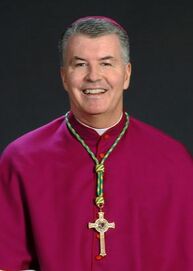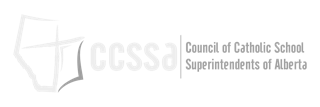- Details
- Written by ACSTA - Holdsworth - Levi Breederland
- Category: Uncategorised
- Calgary RCSSD
Airdrie, Calgary, Chestermere, Cochrane and Municipal District of Rockyview - Catholic Education Association of Yukon (CEAY)
- Christ the Redeemer CSSD
Black Diamond, Brooks, Canmore, Drumheller, High River, Okotoks, Oyen, Strathmore and Turner Valley - Conseil scolaire FrancoSud
Calgary, Canmore and Cochrane - Conseil scolaire Centre-Est
Bonnyville, Cold Lake, Plamondon and St. Paul - Conseil scolaire Centre-Nord
Edmonton, Fort McMurray, Jasper, Legal, Red Deer, St. Albert and Wainwright - Conseil scolaire du Nord-Ouest
Falher, Grande Prairie and Peace River - East Central Alberta CSSD
Castor, Halkirk, Provost, Stettler, Vermilion and Wainwright - Edmonton CSSD
- Elk Island CSSD
Camrose, Fort Saskatchewan, Sherwood Park and Vegreville - Evergreen CSSD
Devon, Hinton, Spruce Grove, Stony Plain and Westlock - Fort McMurray RCSSD
- Grande Prairie RCSSD
Beaverlodge, Fairview, Grande Prairie, Sexsmith and Spirit River - Greater St. Albert RCSSD
Legal, Morinville and St. Albert - Holy Family CSSD
Grimshaw, High Prairie, Manning, McLennan, Peace River and Valleyview - Holy Spirit RCSSD
Bow Island, Coaldale, Lethbridge, Picture Butte, Pincher Creek and Taber - Lakeland RCSSD
Bonnyville, Cold Lake and Waskatenau - Living Waters CSSD
Edson, Slave Lake and Whitecourt - Lloydminster RCSSD
- Medicine Hat RCSSD
Dunmore, Medicine Hat and Redcliff - Red Deer CSSD
Innisfail, Red Deer, Rocky Mountain House and Sylvan Lake - St. Paul School Division
Mallaig and St. Paul - St. Thomas Aquinas RCSSD
Beaumont, Drayton Valley, Lacombe, Leduc, Ponoka and Wetaskiwin - Yellowknife Catholic Schools
- Details
- Written by ACSTA - Holdsworth - Levi Breederland
- Category: Uncategorised
Executive Officers

Kelly Whalen, President, Holy Family CSSD

Andrew Gustafson, Vice President, Christ the Redeemer CSSD

Harry Salm, Past President, Christ the Redeemer CSSD
Directors

Chantelle Dur, Calgary RCSSD

Katherine Williams, Catholic Education Association of Yukon

Jennifer Leclerc, Conseil Scolaire Centre-Est

Giscard Kodiane, Conseil Scolaire Centre-Nord

Geneviève Poulin, Conseil Scolaire FrancoSud

Daniel Boisvert, Conseil Scolaire du Nord-Ouest

Margaret Cargill, Evergreen CSSD

Cathy Larson, Fort McMurray RCSSD

John Croken, Grande Prairie RCSSD

Greg Schell, Greater St. Albert RCSSD

John Kuran, Holy Family CSSD

Linda Ellefson, Holy Spirit RCSSD

Kathy Glasgo, Medicine Hat RCSSD

Cynthia Leyson, Red Deer CSSD

Lorette Andersen, St. Paul School Division
Ex-Officio

Bishop William McGrattan, Diocese of Calgary
ACSTA Liaison Bishop
Observers
- Details
- Written by ACSTA - Holdsworth - Levi Breederland
- Category: Uncategorised
Who we are:
Mission
Celebrate, preserve, promote, and enhance Catholic education.
Vision
"That all have access to a publicly funded Catholic education."
Core Purpose
We are committed to a unified voice providing spiritual and political leadership for publicly funded Catholic education.
The Alberta Catholic School Trustees’ Association (ACSTA) was formed in 1966 to support and represent 24 member boards from across Alberta, Yukon, and the Northwest Territories. We advocate for the Catholic schools system at the provincial & territorial level, and provide faith-formation and fellowship opportunities for Catholic trustees.
Catholic schools are distinct formational communities that are able to nurture the spiritual, academic, and physical needs of students. We do this by fully permeating the Alberta Education curriculum with our faith - including the teachings of Sacred Scripture, Catholic Tradition and Apostolic authority. Catholic education is a unique partnership between school, home, and parish that seeks to develop a student’s whole person by integrating academic excellence and faith.
The central focus of Catholic education at all levels is Jesus Christ. Every Catholic school is ordered towards Him. Our schools strive to manifest His presence and teachings in the education of children entrusted to our care.
- Details
- Written by ACSTA - Holdsworth - Levi Breederland
- Category: Uncategorised
Please click on the link below to download the following:
- Details
- Written by ACSTA - Holdsworth - Levi Breederland
- Category: Uncategorised
Whereas the aim of Catholic Education is the development of each student towards personal fulfillment and responsible citizenship motivated by the Spirit of the Gospel and modeled on the example of Jesus Christ, the Catholic School Trustee shall, within the duties prescribed in Acts and Regulations and reflecting a ministry within the Church:
- acknowledge that Catholic schools are an expression of the teaching mission of the Church;
- provide an example to the Catholic Community by active participation in the communal life of a parish, and by a personal lifestyle that reflects the teachings of the Church;
- provide the best possible Catholic education according to the programs approved by the Canadian Conference of Catholic bishops and the provincial Minister of Education;
- affirm a strong sense of Christian Community;
- recognize and defend the democratic and corporate authority of the board
- respect the confidentiality of the board;
- strictly support all board policies;
- ensure the affairs of the Board are conducted with openness, justice and compassion; work to improve personal knowledge of current Catholic educational research and practices;
- provide support, encouragement and prayer for the efforts of all persons engaged in the ministry of Catholic Education in Canada.
Canadian Catholic School Trustees' Association
Approved 1998
- Details
- Written by ACSTA - Holdsworth - Levi Breederland
- Category: Uncategorised
- Catholic schools are a publicly funded, vibrant part of the public education system in Alberta, Northwest Territories and Yukon.
- Catholic schools provide an environment for their students which encourages not only high academic achievement, but also person and communal spiritual formation.
- The presence of the Catholic faith is permeated within every element of the school. Our Catholic school communities are guided by faith.
- Indeed, Catholic schools are something special!
- Catholic education has held a longstanding distinct role in Alberta’s public education system. This role existed prior to the creation of the province and then was further solidified constitutionally with the Alberta Act, 1905. Catholic education is still celebrated and continually strengthened today through Alberta’s publicly funded system.
- Enrolment in Catholic schools has experienced a steady increase.
- Within Catholic school communities the values of the Gospel and Catholic teachings are not only taught but they are witnessed and exemplified in action.
- A commitment to the ethics of social justice dwells not only within the walls of the school, but also within the community. This contributes to the wellbeing of our larger communities. Catholic schools celebrate this nurturing and know that it makes Catholic education something special.
- Catholic schools have become a definitive and positive choice for many families.
For more information on Catholic schools in Alberta, Northwest Territories and Yukon, please contact the Alberta Catholic School Trustees’ Association or your local Catholic school board.
- Details
- Category: Legal
This article was originally published in the Spring 2006 issue of The Catholic Dimension, and is re-posted here for public reference.
There has been considerable "disturbance in the force" lately on the issue as to whether municipalities may persuade the provincial government to retract the education tax assessment base, so as to provide more room for municipal taxation. That request collides with the Alberta Catholic separate school constitutional right to a taxation assessment base founded in constitutional provisions, legislation and case law.
In Alberta, the Constitution Act, 1867, the North-West Territories Acts from 1875 to 1898, the North-west Territories Ordinances, 1901, chapters 29 and 30, the Alberta Act, 1905 and the Charter of Rights and Freedoms, section 29, set out a comprehensive constitutional and statutory framework with respect to those rights. It is clear from those provisions that Alberta is granted plenary rights over education, subject to the protection of minority denominational education rights and those non-denominational rights essential for the protection of denominational rights. Although those rights are not frozen in time, nor should be comprehensively listed, they include at least the right or privilege to form a new separate school district and expand existing districts, the right or privilege to levy assessments upon the ratepayers of the separate school district, and the right or privilege not to be liable to assessments levied by any party other than the Separate school district. The mechanism and method for separate Catholic schools to access their taxation base is set out in detail in the School Assessment Ordinance, 1901, ch. 30, which reinforces the provisions of the School Ordinance, 1901, ch. 29, granting the right to a school assessment base.
The leading case in Alberta with respect to the right to an assessment base is the PSBAA case. In that case an important distinction was made between section 17(1) Alberta Act rights and section 17(2) Alberta Act rights, the former protecting only separate electors, and directed only to protect property assessment support, and the latter protecting both separate and public school electors, guaranteeing equity and fairness in funding as between their boards. In Alberta, therefore, there are two distinct constitutional rights; the right to access the property assessment base for financial support, and the right to equity and fairness in funding. The Court of Appeal of Alberta clearly held that separate Catholic boards had a "special constitutional status" and an absolute right to "requisition taxes directly from ratepayers. Such a right is granted only to separate boards, to protect them from the "tyranny of the majority." Justice Berger specifically said that "the right of the separate schools to tax their supporters was part of the bundle of protected rights and privileges" to which they were constitutionally entitled and that "the right of separate schools to tax and spend is . . . inviolable" to such an extent that the provincial government has no right to regulate how the funds from the opted-out assessment base may be spent by Catholic separate boards. The Supreme Court of Canada agreed that separate school boards have a special constitutional status which allows them "to requisition taxes directly from ratepayers."
In Ontario, the constitutional scheme and legislative scheme are different, as was made evident in that province in the OECTA case which interpreted the constitutional protections granted to separate school supporters in Ontario, as set out in the Scott Act. The Scott Act does not have as strict a division between the right to an assessment base and the right to equity and fairness, and did not constitutionally incorporate two separate ordinances, differentially protecting both constitutional rights, as in Alberta. In addition, the Ontario legislation considered in the OECTA case specifically preserved the right to a school board tax assessment base, a system of taxation declarations, assessments of property for education taxes, the setting of mill rates and the levying and collection of education taxes, dividing the taxes into separate and public school pools. All that the legislation in Ontario did was to suspend the rights of boards to determine, levy and collect their own taxes, based upon this continuing education tax scheme, so long as Catholic separate boards received a fair and equitable distribution of taxes. The Trial Court held that, even in the face of the preservation of the school assessment base, there was a breach of the rights of Catholic separate schools to directly determine, levy and collect their own taxes. The Court of Appeal held that where the assessment base was specifically preserved by the legislation, and where there was a temporary suspension of the right to direct taxation, the right of equity and fairness subsumed the right of direct taxation. The Supreme Court of Canada recognized that as long as "property tax rates are still levied for school purposes and collected by municipalities," and as long as "residential taxpayers continue to designate their education taxes for either the public or separate system" the constitutional right to a denominational tax base has not been altered and the suspension of the school boards' rights to raise funds through local taxation is not unconstitutional. The Supreme Court of Canada specifically said that the "preservation of the assessment for school support, levying of property taxes for school purposes, the collection of those taxes by municipalities and the ability of residential taxpayers to designate their education taxes for a separate system," makes the taxation scheme in Ontario valid. The Supreme Court of Canada declined to rule on what would occur if the legislation attempted to remove the educational tax assessment base altogether.
As a result, there is no conflict between the PSBAA case and the OECTA case, and it is clear, constitutionally, legislatively and in case law, that in Alberta, Catholic separate schools have dual constitutional rights to a declared property assessment base (section 17(1) of the Alberta Act, 1905, and chapters 29 and 30 of the Ordinances of the North-west Territories, 1901) and to equity and fairness in government funding (s.17(2)). Even in Ontario, where that distinction is not as firm, the suspension of a direct right of taxation in school boards was only allowed in the context of the preservation of the educational assessment base, the levying of property taxes for school purposes, the collection of those taxes by municipalities and the designation of educational taxes for separate and public schools.
You may ask why Catholic separate schools would want to continue to access the tax assessment base, when it does not make a financial difference to the overall funding of school boards. The following are nine important reasons for continuing to access the tax assessment base:
- It is a vital connection between school boards and their electors, especially those electors without children in the school system;
- It provides a mechanism for direct accountability of school board trustees to their electors for the quality of education provided;
- It provides a clear link between taxation and representation, the most fundamental principal of any democratically elected organization;
- It creates a structural interest in the local school board, because of the investment required by the electors in that board;
- It supports board population projections which affect funding for new student places;
- It supports the tradition of local decision-making with respect to public education, consistent with the fundamental democratic principal of subsidiary;
- It supports the conclusion of the Alberta Commission on Learning that there is need for an adequate source of stable funding for the education system, affirming the role that the education property tax assessment base has in enhancing public accountability for education;
- The opted-out Catholic separate school declaration is a public record by electors of the extent of support for their schools, providing the government with an indication of overall support and the strength of a publicly-funded Catholic school system; and
- It recognizes and affirms the constitutional right of opted-out Catholic separate school boards to collectively access this assessment base through requisition by their elected boards, as specifically provided in section 93(1) of the Constitution Act, 1867, section 17(1) of the Alberta Act, 1905, and section 29 of the Charter of Rights and Freedoms, as interpreted and affirmed recently by the Supreme Court of Canada in the PSBAA and OECTA cases.













